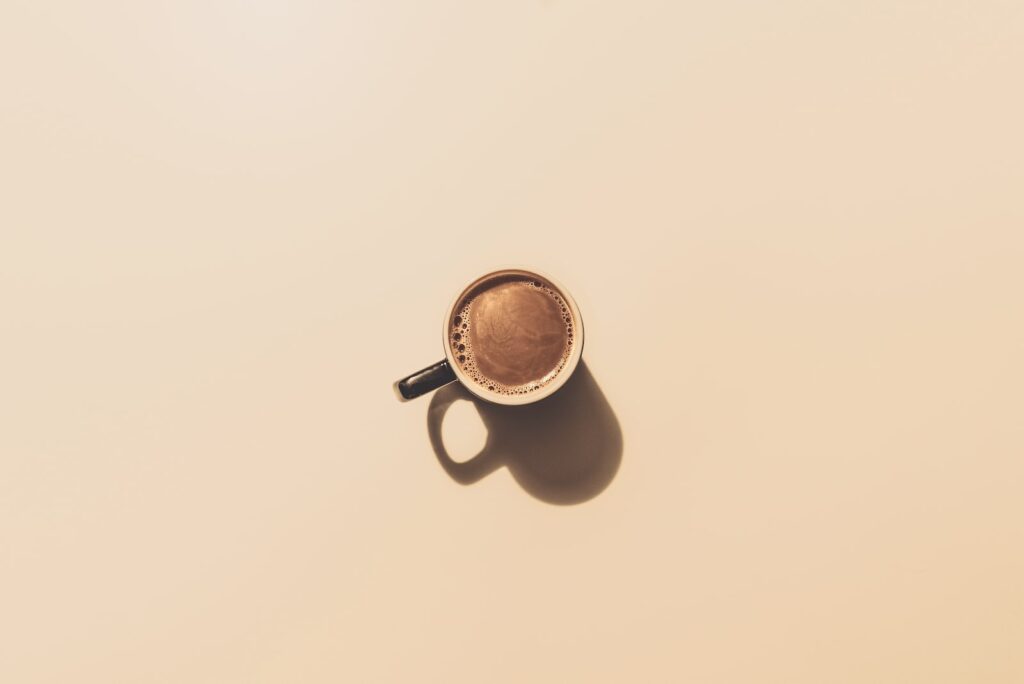We all enjoy a nice cup of coffee with unique flavors, aromas, and mouthfeels whether it be white or black, primarily for the energy boost and increased alertness it provides.
Numerous coffee varieties and preparation methods have emerged as the global coffee drink has grown. Arabic coffee ranks among the strongest coffees in terms of flavor and aroma.
Coffee made from Coffea Arabica beans is known as Arabic coffee. Arabic coffee is worth trying if you’ve been drinking the same kind of coffee for a while and want a change.
Coffee is a morning lifesaver for working people. It also has amazing health advantages that you might not expect. For keeping you active, Arabic coffee is a good choice!
Health Benefits of Arabic Coffee
Arabic coffee’s main benefit is it can increase energy levels that will make your performance smarter in the workplace. A single coffee cup of Arabic coffee contains the following important nutrients.
- Vitamin B2 riboflavin
- Pantothenic acid (vitamin B5).
- Potassium and manganese.
- Magnesium and niacin (B3).
These sums quickly accumulate if you consume four to five cups per day. Many of us find it impossible to even contemplate starting the day without any caffeine.
Studies have shown that caffeine particularly can boost the burning of fat by up to 10% in obese people. Coffee may also reduce type II diabetes risk.
Types of Arabic coffee
Arabic coffee comes in two distinctly different varieties. The Levantine variety is the one we are most familiar with, but there is also a distinctive Peninsular variety made with noticeably lighter-roast chickpeas and more spices.
- Clear and soup-like Peninsular Arabic Coffee
- Levantine Arabic coffee that is dark and bitter
Typica and Bourbon are the two primary varieties of Arabica. We drink the Robusta variety in Canephora. Because of this, the term “Robusta” is typically used to refer to the entire coffee variety.
In essence, Arabica and Robusta are the two main types of coffee beans. The flavour and features of the actual bean are what set them apart, even though they are both members of the same plant family.
How Does Arabic Coffee Keep You Awake?
The brewing technique and species determine the majority of the caffeine content in a cup of coffee. The amount of caffeine is unaffected by the degree of roast.
Coffea robusta typically contains about twice times as much caffeine as coffee arabica does. However, robusta does not taste as good as arabica.
Caffeine Content in Arabian Coffee
The primary sources of caffeine are coffee and cocoa beans. Over 63 plant species from various nations’ leaves, seeds, or fruits contain caffeine, an alkaloid of the methylxanthine family.
Arabian coffee is the most popular beverage and common drink in Saudi Arabia. You might be concerned about the caffeine content in Arabic coffee.
Compared to Turkish coffee, Arabian coffee contains significantly less caffeine.
Although the Saudi population thinks they drink a lot of coffee, they consume very little caffeine. There are only 4.0 mg of caffeine in each Arabian coffee drink.
There is no information available that would indicate how much Arabian coffee should contain to be most effective. To maintain a clinical benefit 5 to 20 mg/L of caffeine is required.
Caffeine’s Mechanism of Action
Caffeine is quickly distributed all through your body after consumption, and even to your brain. Here, caffeine produces its most well-known result, keeping you awake and alert.
Caffeine blocks adenosine receptors that help you fall asleep. It can do this because, in terms of molecular structures, it resembles adenosine, and binds to these receptors.
Adenosine has the function of regulating your sleep-wake cycle. It activates nerve endings in your brain.
As a result, pathways are activated that slow neurological activity and heighten feelings of sleepiness.
Adenosine levels reach a point where they begin to make you sleepy after many hours of being awake.
After that, the cycle is repeated the following day.
However, unlike adenosine, caffeine does not activate these receptors when it binds to them.
Caffeine inhibits them, trying to prevent neurotransmitters from amplifying their sleep-promoting effects while preserving you awake and alert.
As Arabic coffee contains a fair amount of caffeine, it is capable of keeping you awake for any important schedule. Caffeine doesn’t stay in your system forever, which is a good thing for your sleep hygiene.
Arabic Coffee is a Potent Drink!
Nearly twice as much sugar and nearly 60% more lipids are present in arabica. These are crucial to the flavor, aroma, and body of the coffee in addition to flavor.
Arabica beans have a better flavor due to the increase in sugar, which also gives the coffee a cleaner mouthfeel and less bitterness.
Compared to Arabica, Robusta coffees have twice quite so much caffeine, males it more bitter.
Arabica coffees need a lot so much care and upkeep because they have lower caffeine levels, which makes them more vulnerable to insect damage.
When is Arabic Coffee Consumed?
Compared to other types of coffee, Arabic caffeine is far more social throughout Egypt and the Middle East. It integrates the social aspects of alcohol and coffee that are prevalent in Western culture.
Coffee may be the sole thing they serve guests when they visit. In contrast to the West, where people typically quit drinking coffee in the afternoon, Arabic coffee consumption in Arab nations is well into the evening and even early in the morning.
Perhaps caffeine causes people to adjust, or perhaps caffeine and nicotine in Egypt cause people to stay up so late. People start drinking in the mornings while travelling to work, but this practice differs from the western morning ritual.
Conclusion
Obesity and diabetes are major problems in Saudi society. Increasing daily coffee consumption and maintaining a consistent caffeine intake may help people avoid gaining weight, and lower their risk of developing diabetes.
Any caffeinated coffee will keep you awake. If you already have sleep problems, Arabian caffeine will only momentarily make you more alert before making you feel sleepy again.
It should be noted that excessive caffeine consumption has undesirable side effects. Moderation is the key to reaping the advantages of caffeine’s medical benefits while avoiding its drawbacks.








